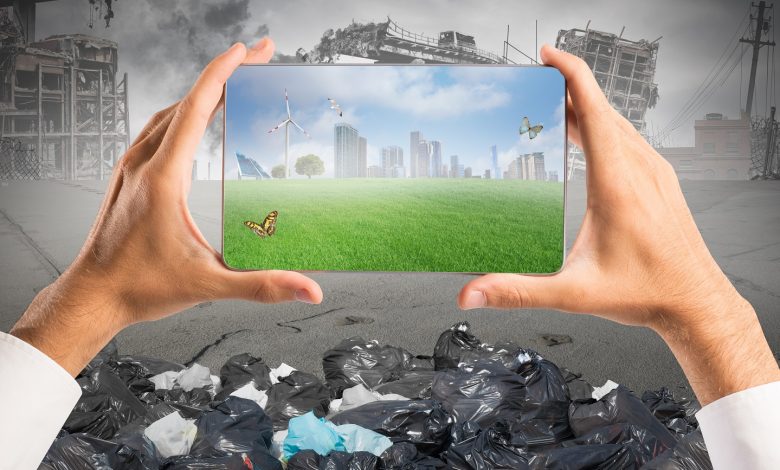
Op-Ed: Beyond escapism: Profiting from a sustainable travel narrative
Can sustainability lower business costs and also create a powerful avenue for revenue growth? Asks David Nicolas
Tourism is often marketed as an escape from reality, as something pristine and perfect. This perception of the ‘perfect’ place or experience is so subjective anyway. The messy nature of life is what makes it interesting and rich.
The complexity of travel is also what makes it worthwhile. We wouldn’t travel if everything were as mundane as our lives at home! Admittedly, all travel doesn’t always come from a place of dissatisfaction but more often from a desire for novelty, challenges, connection to nature, feelings of awe, and direct experience of different cultures.
Originally published in the latest AccomNews print issue. Read it HERE
Travelling for food, for example, has nothing to do with avoiding personal problems back home. This is a perennial desire to escape; sometimes we escape through mental fantasies, and sometimes we escape through physical places.
‘Escape’ doesn’t have to be negative.
YouGov surveyed 13,375 consumers across eight key markets recently to find out what they want from their next vacation. Nearly three out of five consumers say they need a break from routine and home life (61 percent in France, 59 percent in the UK and 56 percent in Australia).
For example, the pandemic travel restrictions in Melbourne triggered a revenge travel phenomenon.
The travel industry has been using this ‘escapism’ sentiment to improve their fill rate long before the pandemic, and this latest ‘revenge travel’ phenomenon has just further fuelled it.
Isn’t this just a short-sighted numbers game leading us right back to over-tourism? The rhetoric in tourism has been that more visitors bring more spending, business for the destinations, jobs for the community, and more tax revenue for the local governments.
A destination’s economic activity may go up, but it may also negatively influence social cohesion (Andrews & Stronach, 2020; Akaroa Voice, 2020).
These increased visitor numbers can be so devastating to the local community and the surrounding environment when they exceed destination capacity, which mind you, often has limited infrastructure to support it.
Leaders in tourism are no exception to focusing on short-term, more urgent obligations.
As an extractive industry, traditional tourism cannot be easily controlled due to its widespread nature as it relies upon the movement of people to destinations incorporating long and complex supply chains including transport, accommodation, hospitality and entertainment.
Could engagement in sustainability not only benefit the planet but also the hotel’s competitive position?
By reducing production costs or commanding higher margins, regenerative tourism offers economic benefits to the hotel’s bottom line. Nevertheless, while sustainability has become increasingly important to leisure and business tourism operators, some still struggle to make a business case for it.
With cash flow so disrupted by the pandemic, some are in a real bind. To be sustainable, the system, business, community or individual must be really resilient to shocks and change.
In fact, sustainability can not only lower business costs, but it can also create a powerful avenue for revenue growth and attract like-minded partners, opening doors to new opportunities.
Which hotel sustainability initiatives offer the greatest competitive advantage?
Cost-saving hotel sustainability trends and initiatives include the following:
- Energy conservation with clear energy installations like solar panels and wind turbines.
- Reduction is single-use plastics, cleaning products and many other hotel amenities.
- Food waste reduction and efficiency.
- Sustainable hotel designs and construction practices.
- Local food product procurement saves on delivery costs.
- Incentivising guests to make more sustainable decisions during their stay.
- Operational changes and green teams.
- Providing electric mobility vehicles such as scooters and motorbikes for hire.
- More circular supply chains.
For tourism to be truly symbiotic, it must be assessed and measured, build community support, facilitate environmental improvements, restore biodiversity, and enhance cultural heritage.
In most cases, though sustainability is not embedded into business processes by design. Procedures and criteria for decisions were designed in a pre-sustainability era where profit was all that mattered.
Sustainability initiatives will always be neutralised by corporate bureaucracy as long as traditional thinking remains the norm.
Sustainability metrics tend to be fragmented, inconsistent, and lack a common standard.
Often, the hotels ESG reports contain inaccurate, unverifiable, and contradictory data, without accounting rigour. Scaling sustainability requires empathy, openness, collaboration, and trust.
So, it’s important to change the narrative, but it won’t work without observable changes in leaders’ actions, behaviours, and decisions regarding their employees, customers, suppliers, and communities.
A hotel can absolutely gain a number of competitive advantages by positioning itself as an eco-hotel in its marketing if it understands how to convey a consistent message that leads to a desirable position as a sustainability champion.
Creating a favourable microclimate for staff and guests and increasing occupancy rates at the same time.
By David Nicolas, the founder of Reson8 marketing agency
David Nicolas is the founder of Reson8 marketing agency. A well-being evangelist and former Optometrist, David now works with well-being including hospitality brands to communicate sustainability and well-being initiatives in their business more effectively.
It is his goal for more purposeful brands to feature a “sustainable tab” on their website.







